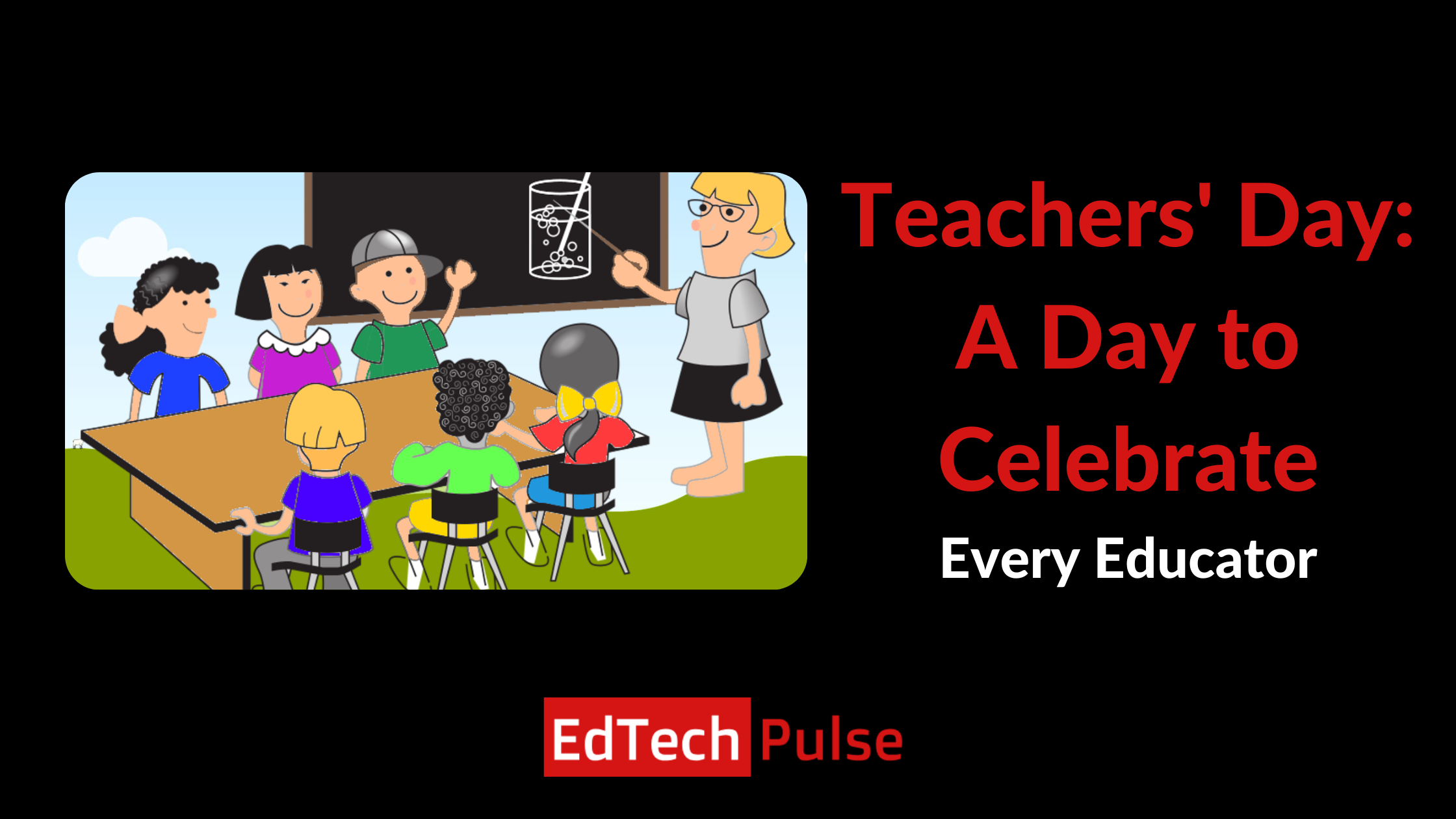Teachers' Day: A Day to Celebrate Every Educator
Teachers have the power to mold a child's potential and improve them as individuals. Teachers' Day honors their crucial influence on how they shape students' lives. But, over the years, an educator’s scope has evolved with the role transitions of a traditional classroom teacher or the advent of new functions, such as online educators or online course instructors.
Aside from the devastating effects of the pandemic, the moment has been particularly extraordinary for educators. After witnessing their struggles, we discover just how flexible and resilient educators can be. Any parent who sat next to their child during hybrid or remote learning sessions better understood what educators did when the schools were closed.
Educators – The Guiding Force in a Students’ Lives
Educators should be celebrated, including school teachers, college professors, special educators, skill educators, and private tutors. But why should they be appreciated for their work? Here are a few reasons:
1. New Pedagogical Adaptations
Both educators and students struggled with distant learning. Educators subsequently discovered a completely new method of teaching students. Since the conventional in-person lecture models could not be applied to a distance learning environment, new approaches have proven crucial.
They turned every home into a classroom. Also, educators had to adjust their practices and be innovative to keep students involved regardless of the channel utilized (EdTech applications, mobile, online platforms, and more).
2. Time Management
The pandemic impacted how educators allocated their time between education, student interaction, and administrative responsibilities. To achieve the targeted learning outcomes, teachers with autonomy modified the curriculum, lesson plans, and time allotment.
Even when the schools resumed offline, teachers made it all work like magic when connecting, counseling, coaching, advising, and planning activities in class.
3. Transition – Online to Hybrid Teaching
Schools that were closed across the country due to the pandemic have reopened, employing a mix of in-person, hybrid, and online learning modes. Educators, despite the challenges, formed relationships with students, families, and coworkers while adapting to unanticipated circumstances, using synchronous and asynchronous instruction, and teaching in previously unheard-of methods.
Educators also had the additional duty of assisting students in making up for incomplete work due to remote learning. Several teachers agreed to participate in after-school tutoring to help students prepare for the following year. Moreover, some modified the curriculum to guarantee that children learn the fundamentals.
4. Health
During the pandemic, teachers' stress levels and anxiety increased while their morale fell. This volatile combination might have led to burnout. These stress-related sensations may be related to a general worry that COVID-19, the new coronavirus, could be contracted by them or a family member. The stress of managing their own and their family's requirements while working full-time from home and adjusting to new teaching technologies may be another factor. Consequently, these factors took a toll on the teacher’s emotional, physical, and mental health.
How to Support Educators?
A mere celebration of Teachers' Day doesn't suffice for the contribution of educators in times of turbulence. We must help them cope with the challenges they face.
For that, we need to answer a few questions.
- How did educators deal with the pandemic, the inability to attend classes, and the sudden demand for blended learning and online instruction?
- What coping mechanisms did educators employ in the face of the unexpected?
- And most importantly, how can we help educators more effectively in the future using these ideas and practices?
As you explore responses to these concerns, you may come across specific gaps that, when filled, can ease the entire teaching process, fostering better results. The following are some of them:
1. Enhance Teacher Autonomy
Giving teachers more say in creating the curriculum, making the timetables, and choosing the teaching style will enhance teacher motivation and performance once the schools have resumed.
2. Make Supportive Communities
Giving educators control over their education and freedom to innovate is insufficient if they lack a peer and professional network to support them. Assist in creating teacher networks inside schools and clusters so that educators may exchange ideas, receive input from one another, and evaluate their methods.
3. Strengthen Blended Teaching Skills
Schools may construct modules and assessments, involve parents in their children's education, and send homework reminders to parents via certain platforms with the proper technical infrastructure and teacher training.
4. Prioritize Social and Emotional Health
The pandemic has drawn attention to teachers' social and emotional well-being on a global scale. Through group counseling programs, educators can communicate with one another and formally reflect on their emotions.
Wrapping Up
Teachers instill knowledge, morals, customs, contemporary problems, and strategies for overcoming them in their students. To make these advances sustainable, the educational system needs to take advantage of them and support teachers.
Keep in mind and expand upon the experience from last year. Despite the difficulty of the pandemic, educators rose to the occasion. They have had trouble adjusting to the shift, but students have significantly benefited from their efforts. Educators were resilient, overcame their fear of technology, learned new skills, innovated broadly, networked and worked with peers, and made time for their professional development.
This Teachers’ Day, support educators and honor them in the truest sense!
